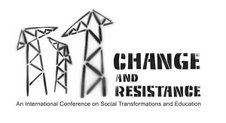Małgorzata Cackowska
University of Gdańsk
Main thesis:
- The Polish market of picture books for children has changed into totally liberal, where economic capital dominates over cultural life.
- The low quality of content and form of picture books in Poland depends on a socially constructed power of mass aesthetic judgment and adults’ permission for the dominating mass culture.
Abstract:
The paper focuses on socio-cultural circumstances affecting present production of picture books for children in Poland in the context of the past (during communism conditions) and globalization. Picture book is therefore distinct as the first meaningful medium connecting a young person with culture and useful for identity-formation, while at the same time, the primary reader position is almost absolutely taken by adults. This is the main reason of researching all adult intermediators who have influence on the content, form I analyze the power/knowledge relations and discourse formations constructing the field of cultural production, distribution and re-production in children’s picture books' market. In accordance with P. Bourdieu’s concept of the field, I examine a relational network of diverse points of individual and inter-subjective concepts of significance in picture books and also aesthetic judgment (occurring in parents’, early education teachers’, children’s and artists’ (illustrators) reflections and experiences) and institutions represented by small- and large-scale editors and publishers from the Polish market of picture books. I based the study of mechanisms in the field and its subfields with its power mechanisms and relations of different points of view, on empirical material collected in Gdańsk and other places in Poland during the years 2004-2006. The methodology applied in the project consists mostly of phenomenography (interviews) and discourse analysis. It aims at understanding picture book construction, re-production and power relations among institutional (publishing houses) and surrounding cultural settings.
Subscribe to:
Post Comments (Atom)

No comments:
Post a Comment